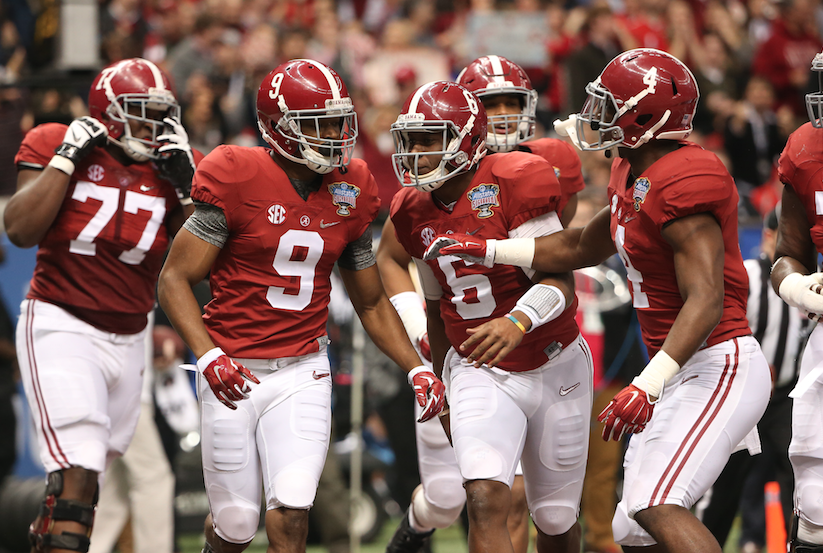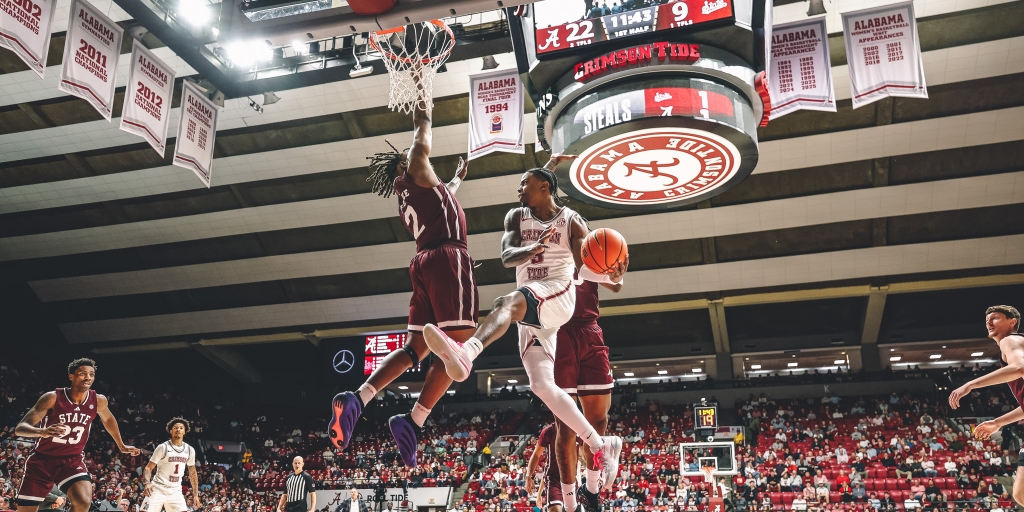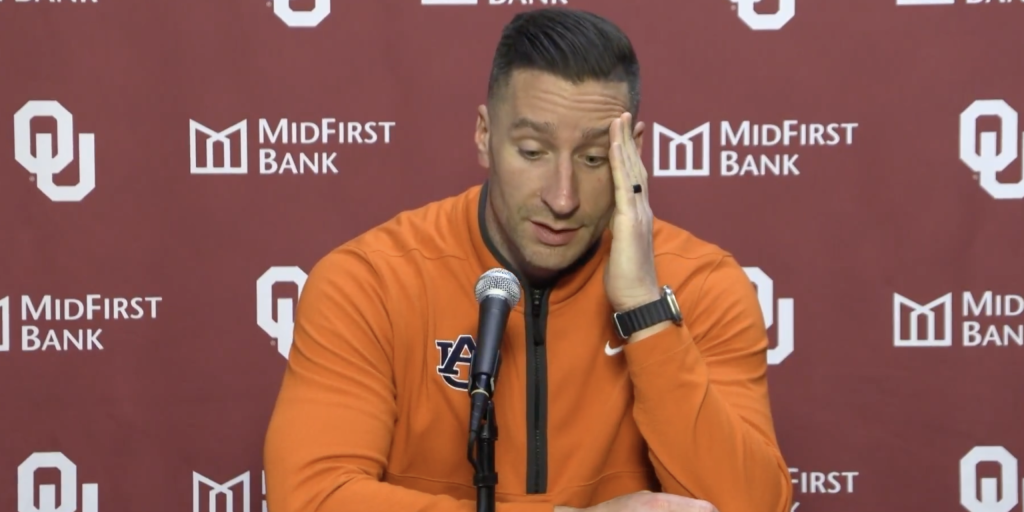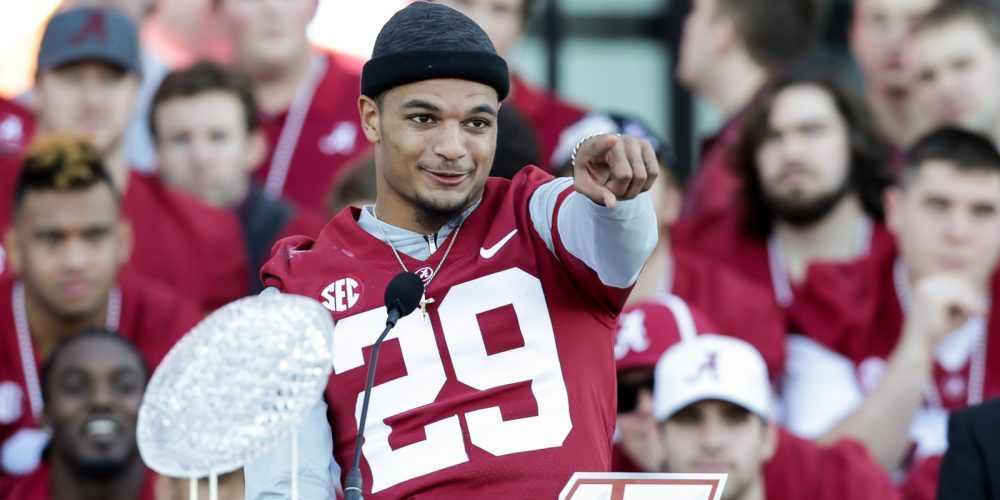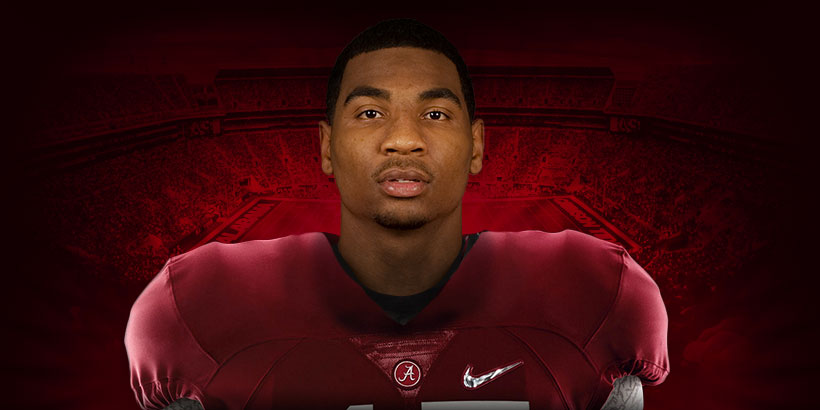Having lost the Sugar Bowl for the second consecutive season, Alabama now faces the offseason with a few question marks, including: Who forgoes their senior season to turn pro? Who will be next year’s starting quarterback? Will the secondary be able to drastically improve going into next season?
With these questions in mind, here are the five biggest story lines for Alabama football in 2015.
1: Those who go pro
Other than the seniors who have no choice but to leave — Blake Sims, Austin Shepherd, Arie Kouandjio, Brian Vogler, Trey DePriest, Nick Perry, etc. — there shouldn’t be too Alabama many underclassmen declaring for this year’s NFL Draft.
Alabama head coach Nick Saban and his staff meet with players during this time and evaluate them, giving them a draft grade of first round, second round, or “stay in school.” Some players buck the advice of staying in school like safety Vinnie Sunseri did last season, but for the most part there are few surprises when it comes to players leaving early.
The locks to the NFL are junior wide receiver Amari Cooper and safety Landon Collins. They are top 10 talents in the eyes of NFL scouts and should go highly in the draft. Linebacker Reggie Ragland and defensive linemen Xzavier Dickson, D.J. Pettway and Jarran Reed could all turn pro, as could cornerback Cyrus Jones. They would all probably be drafted in later rounds. But it would make more sense for them to return to Alabama and improve their standing in the eyes of the NFL decision-makers.
The only wild card in the bunch is running back T.J. Yeldon. The Alabama runner was hampered by injuries for much of the season, but shined when he was healthy. With the usually short lifespan of running backs in the NFL, Yeldon might not be able to afford to take another year of pounding for free. He may not be as highly drafted as Cooper or Collins, but he would definitely be picked.
2: Recruiting the next wave
The cavalry is coming.
Assuming everything goes as planned — or stays as it currently stands — Alabama will have its fourth consecutive top-ranked recruiting class.
According to Rivals.com, Alabama has commitments from the No. 1 dual threat quarterback, wide receiver and offensive lineman, with solid verbals from the second-ranked player at four other positions. Alabama has five 5-star recruits and 13 four-star recruits committed to the cause in 2015, and it could be Saban’s best recruiting class (on paper) ever — though we were all saying that last year.
National Signing Day is Feb. 5 and is usually a ceremony with few surprises for Alabama. The team will be No. 1 again, and the reinforcements for graduating and NFL-ing players are on their way.
3: Finding a quarterback
With fifth-year senior and emotional leader Blake Sims on his way out, Alabama will have another quarterback battle in 2015.
Former Florida State transfer Jake Coker is assumed to be the favorite to fill the role, but the same was said of him last season. Coker has a rocket arm and a healthier knee that is now nearly a year and a half removed from his ACL tear.
The Mobile, Ala. product won’t have this job handed to him — which he knows — and will have to fend off at least three younger signal-callers for the spot.
Cooper Bateman is a redshirt sophomore and was the best-looking quarterback in last year’s A-Day spring game. He has mobility and athleticism, and spent 2014 mostly doing his best impersonation of Dak Prescott, Cardale Jones and other opposing quarterbacks during the practice weeks.
Rising redshirt freshman David Cornwell had a similar injury to Coker’s, but was the star passing recruit in Alabama’s 2013 class, and could challenge for the starting slot.
And finally, incoming five-star recruit Blake Barnett is the No. 1 ranked dual threat quarterback in the country. He has already enrolled at Alabama, and will get a jump on the recruits arriving in the fall. It’s unlikely that the team would pick a true freshman to be its starter, but considering a former DB and running back just led the Tide to the SEC Championship, stranger things have definitely happened.
4: Finding a secondary
In its final three games, Alabama gave up an average of 226 passing yards a game, which is the most surrendered by a Saban defense in his eight years at the school. They struggled most in obvious passing situations. When it was third and long against Auburn, Missouri or Ohio State, it was already assumed that a pass for more than 10 yards would be completed against Alabama’s secondary.
Cornerback was an issue this season, but it wasn’t the constant revolving door it was in 2013. Jones emerged as the team’s best corner, with Eddie Jackson and Bradley Sylve as his partners on the other side. Freshman Tony Brown will be a year older, as will the redshirted Hoover product Marlon Humphrey. Incoming five-star recruits Minkah Fitzpatrick and Kendall Sheffield will also compete for time at a cornerback position that won’t lose anyone from this season.
The spot with the most questions surrounding it is safety.
With Collins and Perry leaving, along with Jarrick Williams, only one of the four regular starters at the position will remain. While Geno Smith has been good at times, filling the other slots could be a challenge. Alabama has rising sophomore Laurence “Hootie” Jones prepared to take over one of the vacant spots, with five-star Deionte Thompson being tapped as one new recruit who could see early playing time.
5: Adjusting the defense
Alabama’s defense may need the same kind of jolt that Lane Kiffin brought to an offense that had grown a bit stale.
During his Sugar Bowl media availability, Kiffin commended Saban for his constant drive to adapt. After consecutive losses in the Sugar Bowl and games against Auburn and Missouri that saw the Tide’s vaunted defense give up record yardage, you can bet Saban will be ready to huddle with Kirby Smart and adjust.
This won’t be the first time Saban has had to tweak his schemes. The Alabama defenses that have been so successful in recent years were an adaptation of what Saban did as a defensive coordinator in the NFL. When more and more NFL teams started going to the spread offense, he was forced to adjust his 3 deep zone. The changes he made to the role middle linebackers play in his scheme led to studs like Rolando McClain, Dont’a Hightower and C.J. Mosley becoming All-Americans, and ultimately pros.
The defense’s core identity should and will stay the same, but some adjustments are once again needed to deal with college football’s faster-paced offenses that employ athletic quarterbacks.
Don’t bet against Saban on this. He’s proven he can adapt.




